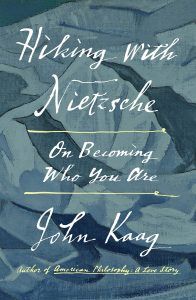Becca Rothfeld in The Atlantic:
 The dubious notion that philosophy is a guide to calmer living is as old as the field itself. Saint Augustine described philosophy as a “harbor” for troubled souls in a fourth-century monograph on the happy life, and the sixth-century Roman senator Boethius titled the treatise he wrote while awaiting execution “The Consolation of Philosophy.” More recently, in his Philosophical Investigations (1953), Ludwig Wittgenstein suggested that the aim of philosophy is not to seek the truth but rather to provide relief—“to show the fly the way out of the fly-bottle.” Wittgenstein didn’t embrace “a single philosophical method.” Instead he concluded, “There are indeed methods, different therapies” to quiet the buzz of our puzzlement.
The dubious notion that philosophy is a guide to calmer living is as old as the field itself. Saint Augustine described philosophy as a “harbor” for troubled souls in a fourth-century monograph on the happy life, and the sixth-century Roman senator Boethius titled the treatise he wrote while awaiting execution “The Consolation of Philosophy.” More recently, in his Philosophical Investigations (1953), Ludwig Wittgenstein suggested that the aim of philosophy is not to seek the truth but rather to provide relief—“to show the fly the way out of the fly-bottle.” Wittgenstein didn’t embrace “a single philosophical method.” Instead he concluded, “There are indeed methods, different therapies” to quiet the buzz of our puzzlement.
Nietzsche, by contrast, had no stomach for palliatives. As John Kaag reflects in his new memoir cum philosophical excursion, Hiking With Nietzsche: On Becoming Who You Are, the German thinker aimed “to terrify rather than instruct us.” “Become who you are,” the quotation that Nietzsche chose for the epigraph of his graduate dissertation, is a line from the Pythian odes of the Greek poet Pindar. Bereft of context, this pronouncement can sound as flabbily vacant as the text of a self-help manual. After all, how could anyone fail to become who she is? Is there any instruction more trivial? The full Pindar quote, however, outlines a daunting assignment: “Learn and become who you are.” Nietzsche knew that if philosophy can serve as therapy, it’s by delivering an electric jolt to the soul.
Kaag, the philosophy-department chair at the University of Massachusetts at Lowell, began experimenting with what might be called first-person philosophy—not desiccated fodder for arcane journals but robust inquiry into what he calls the “stuff of everyday life”—in his 2016 book, American Philosophy: A Love Story.
More here.
